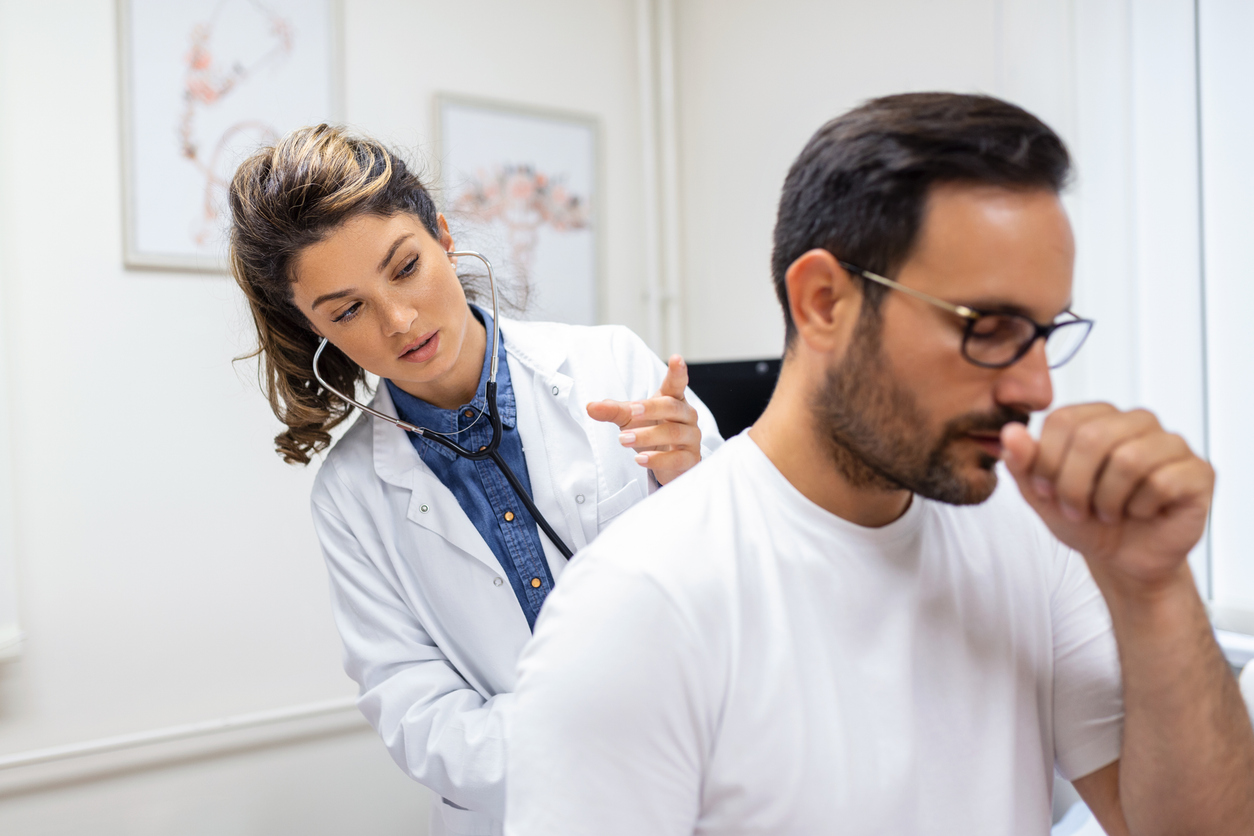When to See a Doctor for the Common Cold

A runny or stuffy nose. Sneezing. Coughing. Feeling under the weather. Chances are you’re experiencing the common cold. Many people “catch” a cold two to four times a year, and usually, they resolve on their own after about a week. But is there ever a time when cold symptoms warrant a trip to the doctor?
What is the Common Cold?
A cold is a viral infection that mainly affects your nose and throat. It can be caused by hundreds of different viruses, but the most common one is rhinovirus. Other viruses, like certain types of coronaviruses, can also cause cold-like symptoms. Colds are usually mild and go away on their own within about a week, though some symptoms (like a cough) can last a bit longer. Unlike the flu, common colds don’t tend to cause severe symptoms or serious health problems.
Stages of a Cold and Common Cold Symptoms
A cold usually follows a predictable pattern, starting with mild symptoms and gradually getting worse before improving. Knowing what to expect during each stage of a cold can help you manage your symptoms and know when it’s time to seek medical attention. Here’s a breakdown of the typical progression of a cold, from the first signs to recovery.
Days 1 to 3
When you first catch a cold, usually within the first few days, you might notice a tickle or scratchy feeling in your throat. Other early symptoms can include:
- Sneezing
- A runny nose
- Stuffy nose (nasal congestion)
- Coughing
- Hoarseness or a raspy voice
Days 4 to 7
During this stage, your symptoms will likely get worse or peak. You may start feeling:
- Achy all over
- Headaches
- Runny nose and watery eyes
- Tired and low on energy
- A mild fever (more common in kids)
Days 8 to 10
By this stage, your cold symptoms should start winding down. Many people begin to feel better and may be symptom-free by now. However, a lingering cough, can stick around for a couple of weeks. If your symptoms suddenly get worse or your fever comes back, it’s a good idea to see a doctor. You might have developed another infection, like bronchitis or sinusitis, or a complication. like pneumonia.
How Can You Prevent Getting a Cold?
While it’s impossible to completely avoid catching the common cold, there are steps you can take to reduce your risk. These simple habits can help minimize your chances of getting a cold and protect people around you.
- Wash your hands regularly with soap and water, especially before eating or touching your face.
- Avoid close contact with people who are sick and stay home if you’re feeling under the weather.
- Cover your mouth and nose with a tissue or your elbow when coughing or sneezing.
- Disinfect surfaces like phones, doorknobs, and keyboards that may carry germs.
- Boost your immune system by getting enough sleep, eating a balanced diet, and staying active.
- Use hand sanitizer when soap and water aren’t available.
What are Home Remedies for Cold?
When you catch a cold, there are several simple ways to help ease your symptoms and feel better faster. While there’s no cure, these remedies can help manage discomfort, support your immune system, and speed up recovery. Here are some practical tips to try at home:
- Stay hydrated by sipping water, juice, clear broth, or warm lemon water with honey. These drinks help loosen congestion.
- Getting enough sleep helps your body’s immune system work more efficiently to fight off the virus.
- Gargle with a mixture of 1/4 to 1/2 teaspoon of salt and eight ounces of warm water.
- A teaspoon of honey can help soothe a cough in children over the age of one and adults.
- Saline sprays or drops help clear nasal congestion, especially for young children. For infants, use a rubber suction bulb to remove mucus.
- Zinc lozenges or supplements might reduce the length of a cold by about a day if taken early on.
These home remedies can help make a cold more manageable, but if symptoms worsen or last too long, it’s always a good idea to consult a primary care physician.
When to See a Doctor for the Common Cold
You should see a doctor if your cold symptoms are getting worse, lasting longer than expected, or if you’re concerned about severe symptoms. Here are some signs that it’s time to seek medical attention:
- A temperature over 101.3°F that lasts for more than three days
- Intense sore throat, sinus pain, earaches, chest pain, or a very bad headache
- Difficulty breathing, shortness of breath, or wheezing
- If your cold symptoms don’t improve after 10 days or seem to get worse after initially getting better
- Inability to keep fluids down due to vomiting
- If you have an ongoing health issue like asthma, heart disease, or diabetes, even mild cold symptoms may need a doctor’s evaluation
In addition, if your child experiences any of the following symptoms, contact a healthcare provider as it could indicate a more serious condition:
- A fever in an infant under 2 months old.
- Wheezing sounds when breathing.
- Lips turning blue.
- Refusal to eat or drink, which could be a sign of dehydration.
- Unusual fussiness or excessive drowsiness.
- A persistent cough lasting longer than 3 weeks.
Common Cold Treatment at AllCare
At AllCare, we offer compassionate primary, immediate, and telemedicine physicians who can help address all your common cold symptoms. We also provide convenient flu testing, COVID-19 testing, sore throat treatment, and more in one convenient location. If you are experiencing symptoms of the common cold, schedule an appointment with AllCare today to ensure your symptoms are caused by the common cold and not another illness.